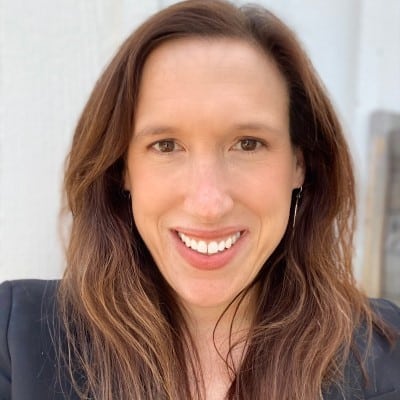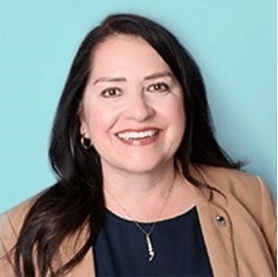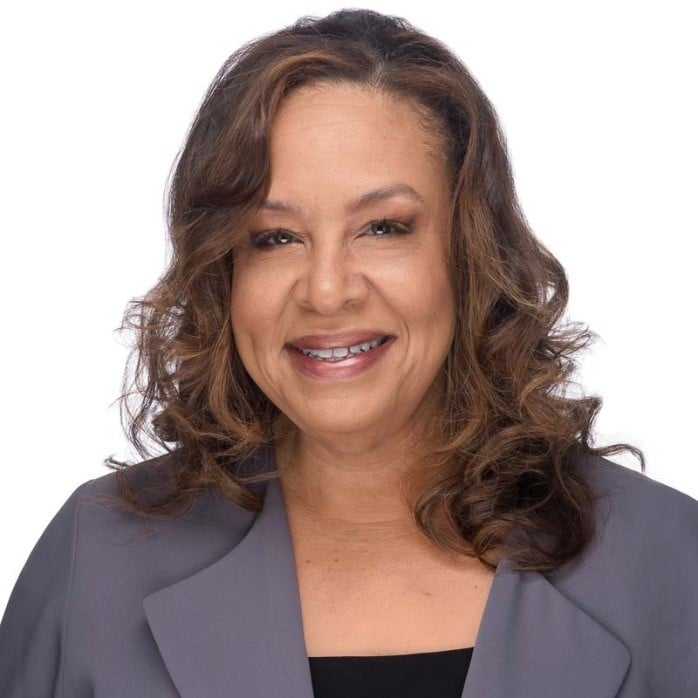Three Developers Share Strategies for Integrating Healthcare and Housing

By Abram Mamet
10 min read
For decades, policymakers have recognized the intrinsic relationships between housing and health outcomes. Indeed, the Federal Office of Disease Prevention and Health Promotion recognizes a staggering web of links between stable housing and positive health outcomes, encompassing everything from mold exposure and sleep quality to stress levels, and even neighborhood attachments stemming from housing and affecting overall health. Conversely, poor health also correlates with increased housing instability, with one New York study finding an increased occurrence of chronic disease among newly homeless populations.
To be clear, prioritizing housing as a social priority can consistently save communities much-needed funds and help provide long-term care for residents; one 2022 meta-analysis of various Permanent Supportive Housing (PSH) initiatives across the country found a median cost-aversion benefit of over $28,000 per resident.
Today, many affordable housing developers are forging strong partnerships with healthcare organizations and local municipalities to advance each other’s missions: to provide stable, long-term housing solutions while strengthening residents’ health and wellness.
Tax Credit Advisor interviewed three affordable housing developers pioneering the integration of housing and healthcare.
Mercy Housing Solidifies Community through Vibrant Network
In 2019, the Denver Housing Authority (DHA) launched “DHA Delivers for Denver” (D3), a comprehensive bond initiative aimed at enhancing affordable construction in the Queen City of the Plains. One of the sites targeted by that initiative was 901 Navajo St., a cinderblock warehouse one block from the 10th & Osage light rail station and at the south edge of DHA’s Mariposa, a HOPE VI-style mixed-income redevelopment of the previous Lincoln Homes public housing (within La Alma Lincoln Park).
Despite its rugged appearance, 901 Navajo seemed to be the ideal location for a major component of the D3 initiative. The surrounding neighborhood is relatively transit-rich and is experiencing rapid urban revitalization, including NPS-supported city park overhauls.
“The idea was to develop a permanent PSH pipeline in the city by having DHA find properties in well-served, transit-rich areas and get them entitled,” says Carolyn Reid, associate director of real estate at Mercy Housing Mountain Plains. The initial Requests For Proposals called for 40 percent of the project to have PSH units, with DHA providing entitled land at no cost to the developer.
When putting together their application, Reid says that Mercy Housing realized they could go far beyond simply having a chunk of PSH units integrated within the property and could leverage the organization’s decades of health and housing expertise and partnerships. Mercy tapped this network, inviting a longtime tenant—Denver Indian Health and Family Services (DIHFS)—to join the application as a healthcare partner. “Including them just made sense to us,” Reid says.

This would allow DIHFS to “give a prescription for housing,” Reid says. “If DIHFS is trying to give someone insulin, and they don’t have a refrigerator because they’re living on the street, there’s just not much they can do. It became clear right away that there was a synergy that made sense for them to be able to serve their population” with housing right next door to healthcare services.
With a cohesive vision integrating healthcare services directly into both PSH and non-PSH units, Mercy was awarded the project, which they call “9th and Navajo,” in the Fall of 2022 and broke ground just two years later, in December 2024.
“9th and Navajo will be one of our flagship developments in the region,” says Shelly Marquez, president of Mercy Housing Mountain Plains. “It’s the first in our region where healthcare and a new development are coming together.”

Ultimately, 9th and Navajo will provide 190 units, 94 of which will be reserved for PSH, while the remainder will be restricted to residents earning between 30 and 60 percent of the area median income. Additionally, the building will feature a separate entrance to an 18,000-square-foot federally qualified health clinic operated by DIHFS, benefiting residents and neighbors of the project. DIHFS will consistently maintain on-site staff to provide clinical assistance and case management for PSH tenants in collaboration with another partner, Wellpower.
In addition to the D3 tax-exempt bond award, financing for the project includes $4.5 million Federal LIHTC; $1.1 million State Affordable Housing Tax Credit (unchanged); $1.8 million in Section 48 ITC Solar Credits for a 343kW solar array on the roof; $8 million grant from Colorado Division of Housing; $8.5 million grant from City and County of Denver Office of Housing Stability (HOST), as well as a 20-year project-based voucher contract from HOST for the 94 PSH units; Mercy Community Capital (Mercy’s CDFI) also provided $2.5 subordinate debt through the state’s Affordable Housing Investment Fund program.
On the clinic side, the New Markets Tax Credit project consisted of $11.5 million QEI from Colorado Growth and Revitalization Fund (CGRF is CHFA’s CDE), which provided the clinic with $3.58 million in gross NMTC equity proceeds.
The total development cost is $111 million.
Marquez emphasizes that the capital campaign is a collaborative effort. “This team did an amazing job of getting in front of all the foundations in Colorado to tell them…about the need we have here and how we’re bridging health and housing.”
Marquez states that the deal is relatively complex, involving tax credits, bond allocation, and the capital campaign. She cites a consultant—SB Clark & Associates—as particularly helpful in navigating those complexities.
Reid says the development is set to open in Q1 2027, and leasing will begin in the fall of 2026.
Pennrose Leverages Unique Structure to Strengthen Health Outcomes
“If a resident or a child doesn’t have adequate housing, it affects so many other parts of their lives,” says Ivy Dench-Carter, senior vice president of development at Pennrose. This understanding has motivated the company to engage in conversation and collaboration with healthcare partners nationwide to uplift their residents.

One result of that outreach is McAuley Station, a sprawling development in Atlanta’s Sweet Auburn neighborhood. This historic tract is home to significant Black history, including the childhood home of Martin Luther King Jr.
According to Dench-Carter, Pennrose partnered with Atlanta-based healthcare provider Mercy Care, Atlanta’s only healthcare program for the homeless. Mercy Care’s clinic is located immediately adjacent to McAuley Station, which opened last November and recently reached 100 percent occupancy. (Although affiliated with the same religious roots in the Sisters of Mercy, Mercy Care and Mercy Housing are separate organizations.)
Mercy Care provided the land and financing for part of the project’s 312-space parking deck. Beyond that, Dench-Carter says that the deal was a “typical LIHTC structure with lots of funds,” including $26 million in tax-exempt bonds issued by Invest Atlanta (the City of Atlanta’s economic development agency) and $30 million in equity from Truist Bank, which was formed in 2019 after locally headquartered SunTrust Bank merged with BB&T. Funding was boosted by favorable financing from Invest Atlanta, Trinity Health, the Georgia Department of Community Affairs (the state’s housing finance agency), and Partners for HOME (a collaborative applicant for the Atlanta Continuum of Care), all of which have been “very progressive in getting funding out the door,” says Dench-Carter.
One unique component of McAuley Station is the inclusion of ten “respite” units, leased indefinitely by Mercy Care to provide stable housing for patients who may need long-term care. “The units are right next door to the hospital, so Mercy Care can provide the care they need from a respite perspective,” says Dench-Carter. “Mercy is paying for those units, and we collaborate with our supportive service department to provide wraparound services for those residents.” This is the first structure of its kind in Pennrose’s portfolio.
These units benefit the hospital and resident patients by offering a high-quality, comfortable living experience right next to their place of medical care.
Furthermore, these unique respite units enhance the project’s long-term financial viability.
“Mercy Care pays a pro rata percentage of general operating costs, such as water and utilities, that supports those ten units,” says Dench-Carter. “So, there is no vacancy reduction, and you’re underwriting that full rent instead of taking into consideration bad debt and vacancies that we’ll typically have to underwrite for our deals.”
In addition to the ten respite units, McAuley Station, in partnership with Partners for HOME and the Atlanta Housing Authority, has 30 units designated for formerly homeless individuals, each with their own case managers and levels of care. The remaining 130 units on the property are allocated for households earning up to 60 and 80 percent AMI.
Dench-Carter stresses that regardless of a resident’s designation within the building, all tenants can benefit from the inclusion of Mercy Care in the development. “Our partners at Mercy Care are awesome. Residents can benefit from free health screenings. We’ve got a medical exam room within the building so that the specialized staff can come right over and provide various health screenings for residents.”
McCormack Baron Salazar and Centene Forge a Powerful Partnership
In 2024, McCormack Baron Salazar (MBS), one of the nation’s leading developers of affordable housing, partnered with the Centene Foundation (CF), the philanthropic arm of Centene Corporation, America’s largest Medicaid managed care organization, to leverage their respective strengths and improve health outcomes by increasing access to stable, affordable housing.
MBS sought a partner in Centene that shared its commitment to combining deep, local expertise with national reach and data. MBS and the CF will collaborate closely at every step to reduce the shortage of affordable housing.

“There have been attempts before to try to marry the [housing and healthcare industries],” says Adhi Nagraj, chief development officer, MBS. “A lot of the past work has been more transactional, where a healthcare or insurance company will find a project that they invest in. With Centene, we’ve built not a transactional relationship, but a long-term marriage.”
This led to the partnership officially launching in May 2024, with Centene investing funds in MBS’s development activities that, according to Nagraj, are expected to enable approximately $900 million in direct construction-related activity through below-market-rate loans. (The exact financial structure of the relationship has not been publicly disclosed.)
Nagraj says these funds will primarily be committed to pre-development activities for projects identified by Centene. “What happens is we often get stalled in pre-development, having to chase funding sources,” says Nagraj. “Centene’s investment is going to help us accelerate the production of these homes.”
However, as Nagraj stresses, this partnership goes beyond capital. It is about shaping ground-up communities with housing and healthcare expertise guiding the way. Importantly, designing developments based on feedback from local communities with input from Centene’s local health plans, which have the public healthcare insights and live and work in the communities they serve. “It starts with a community scan,” says Nagraj. “What are the needs of the community? What is the square footage that we have left over? Is it a federally qualified health center? Is there fresh food? What is the after-school programming?”
Ultimately, the projects resulting from MBS and Centene’s collaboration can generate data that will inform similar initiatives. “If we can use that data to shape public policy and spur investment in things, like housing, education, and food security—investing in people’s health and not in their sickness—we can do amazing things for the low- and moderate-income populations we serve.”
The partnership focuses on geographically mutual areas of interest, where both companies are active and have meaningful connections to local markets and partnerships. Nagraj says both organizations share a “hyper-local” approach to their work across the country, seeking out local nonprofits, government organizations, and community leaders as valued collaborators. MBS and Centene have announced their first major project, Bowen Homes, in Atlanta. “What’s so cool about this project is how Centene’s Georgia-based health plan, Peach State Health Plan, has partnered with us to help shape what the physical space will look like and what supportive services the residents and surrounding community need.”
Additional significant projects around the country are in the works, and Nagraj says a future announcement will be made public.

